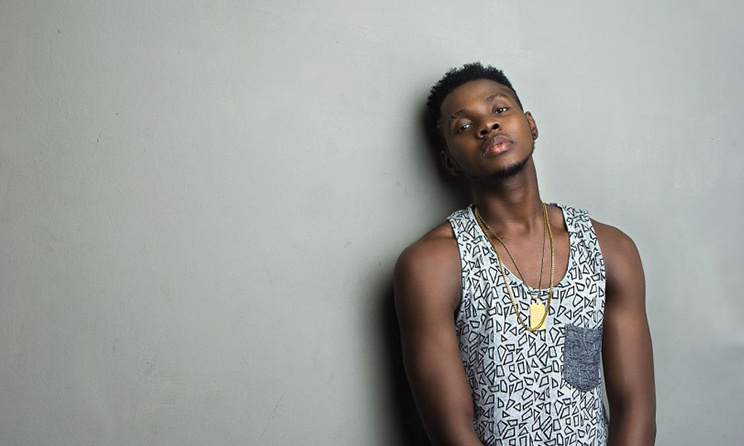Yeba: Kiss Daniel recalls Ebenezer Obey
You do not title your debut album New Era, as Kiss Daniel did, without dreams of the future. And you do not dream about the future without a glimpse of the past.
 Kiss Daniel's 'Yeba' is influenced by Ebenezer Obey's miliki music. Photo: Gworldwideent.com
Kiss Daniel's 'Yeba' is influenced by Ebenezer Obey's miliki music. Photo: Gworldwideent.com
It is from the past that Kiss Daniel finds inspiration for ‘Yeba’. The song’s video begins with a rave where characters are in a post-party haze, bodies slumped in different postures with shisha pipes and wine bottles strewn across the floor. The characters wake up after a time jump from 2017 to 1986, where the ladies are dressed in short ‘oleku’ wrappers, in vogueish in South West Nigeria at the time. If 1986 holds any significance to the artist or his music, it isn’t such that can be easily sussed out.
The second time-jump is more remarkable. It is to 1971, the year Ebenezer Obey released ‘E Sa Ma Miliki’. That laid-back admonishment that his listeners enjoy themselves without worries, came with a brand of juju that is slow and mellow. It became the backbone of Obey’s signature.
For better or worse, more inventive Nigerian pop artists are finding value in mining popular indigenous music of the past. Recent examples include Teni Entertainer sampling Adewale Ayuba in ‘Fargin’ and Simi updating Obey’s ‘Aimasiko’. These artists sample words and sounds from the past and bend them to desires of the present.
But Kiss Daniel’s adoption of ‘E Sa Ma Miliki’ is slightly different. Obey’s words do not make an appearance. Rather, the rhythm and chords of ‘E Sa Ma Miliki’ are brought forward, and a synthetic accordion sound is used as leitmotif to introduce the time jumps. ‘Yeba’ also proceeds at a faster pace than Ebenezer Obey’s music—famed for the languid tempo that made it a preference of Yoruba adults and aristocracy—but still laid back enough to fit into Kiss Daniel’s oeuvre, alongside songs like ‘Laye’ and ‘Woju’.
The lyrics of ‘Yeba’, however, lack Ebenezer Obey’s philosophical bent. Kiss Daniel is bound by the obsession of Nigerian male pop stars with feminine backsides—here referred to as kaka. The song contains the sound of a woman saying, “Uncle stop touching”. This is typical of dance floors where men often feel entitled women’s bodies. “Sorry madam” the male voice replies. The apology is a rarity.
Although he’s not a slouch in the art of words, lyrical inventiveness has never been Kiss Daniel’s forte. “It is not about what he is saying. It is about how he makes you feel,” observed Oris Aigbokhaevbolo. And here, Kiss Daniel wants you to feel nothing but the need to dance. To parse the lyrics for substance beyond their ability to add vocal muscle to the miliki bones of the beats is to court migraines. Or what do you make of, “Baby let me cover you / When you stand I’m under you”?
The penultimate time jump in 'Yeba' is to 2013, the year Kiss Daniel started his career, and last one to 2017, a time when the average male Nigerian pop star continues to treat lyrical thought like an allergen: think too much and you’ll break up in hives. Killertunes, producer of ‘Yeba’, is reported as saying the sound was created out of fun and not some product of excessive thought. (Duh!) But while the journey to the past may not have been deliberate, Kiss Daniel returns with ‘Yeba’, a musical yelp of passable quality. And thanks to Killertunes’ production and Clarence Peters’ fine video directing, there’s room for the kind of thought Kiss Daniel’s words have avoided.
Artist: Kiss Daniel
Song: Yeba
Label, Year: G Worldwide Entertainment, 2017























Commentaires